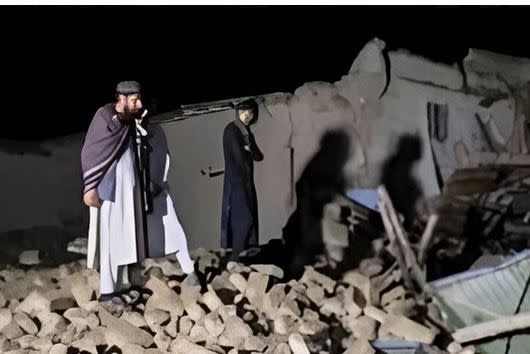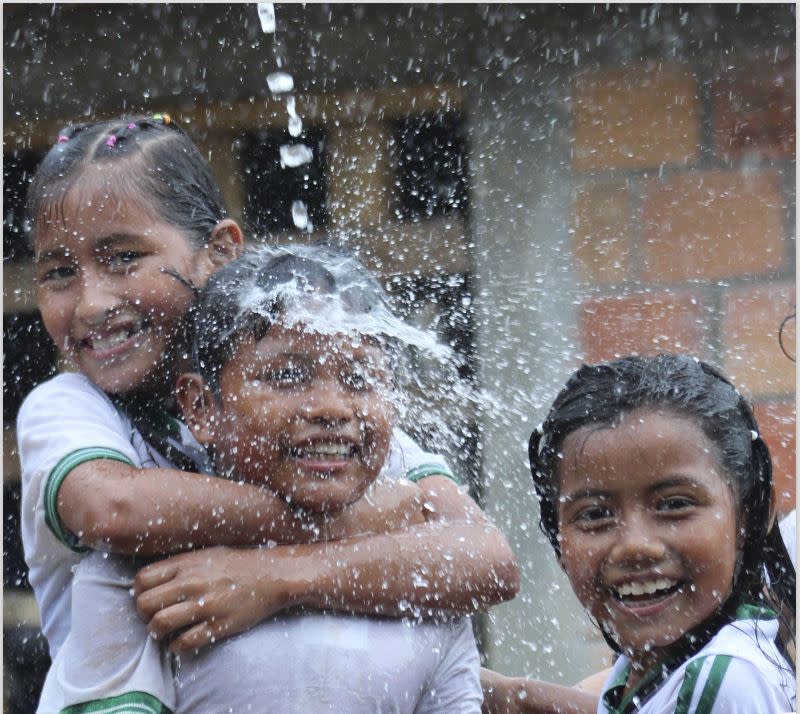Our Mission
The International Committee of the Red Cross (ICRC) is an impartial, neutral and independent organization whose exclusively humanitarian mission is to protect the lives and dignity of victims of armed conflict and other situations of violence and to provide them with assistance.
The ICRC also endeavors to prevent suffering by promoting and strengthening humanitarian law and universal humanitarian principles.
Established in 1863, the ICRC is the origin of the Geneva Conventions and the International Red Cross and Red Crescent Movement. It directs and coordinates the international activities conducted by the Movement in armed conflicts and other situations of violence.
How Your Donations Help
- CHF0.42 1 kg of bread distributed in Afghanistan 4 people in Afghanistan
- CHF2.29 1 mosquito net distributed in Ethiopia. 4 people in Ethiopia
- CHF3.55 1 hygiene parcel for a family of 4 4 people for 1 week in Burkina Faso
- CHF17.90 First aid kit 5 people for one month in Afghanistan
- CHF1.30 1 kg of wheat flour distributed in Ethiopia. 4 people for 1 week in Ethiopia
- CHF6.85 1 solar lamp for a family of 4 4 people for 1 year (or longer) in Burkina Faso
Our Impact
10 months ago — Africa

The International Committee of the Red Cross (ICRC) currently operates in 46 of the 50 countries most vulnerable to climate change and least equipped to adapt. Nearly half of the world’s 122 million displaced people live in countries facing both conflict and severe climate hazards. In regions like the Sahel and Horn of Africa, recurrent droughts, floods, and violence are driving instability and humanitarian need. In response, the ICRC and its partners integrate climate risk analysis and conflict sensitivity into operations, while upholding international humanitarian law (IHL) and supporting local actors through resilience-building programs and climate-smart interventions. Our work on the ground illustrates how we adapt our assistance to the unique intersection of crisis and climate. In Ethiopia, our largest solar-powered water system in Africa now serves over 77,000 people in Lalibela, mitigating conflict-driven power shortages and ensuring a stable water supply. In Myanmar, where climate shocks threaten food security, we promote climate-smart agriculture by distributing salt-tolerant rice and sustainable farming inputs. In conflict zones prone to climate hazards, we restore critical services—deploying mobile water units, delivering essential medicines, and rehabilitating infrastructure—to protect health and dignity. As a partner within the Red Cross Movement, we recognize that addressing the climate crisis requires coordinated, cross-sector action. That’s why we co-launched the Climate and Environment Charter for Humanitarian Organizations, aligning our operational and advocacy efforts around climate resilience, environmental safeguards, and principled humanitarian action. From advocating for respect of IHL to partnering with global institutions on climate finance access, the ICRC strives to ensure that the most vulnerable communities are not left behind in global climate responses. To learn more about how we’re driving systemic change to address the impacts of climate change on communities in crisis-affected regions, please visit www.icrc.org.
4 months ago — Afghanistan

On August 31st at 11:47pm local time, a powerful 6.0 magnitude earthquake struck eastern Afghanistan, devastating communities across five provinces. The impact was especially severe in Nurgal and Sawkai Districts in Kunar, where entire villages were reduced to rubble. Over 1,100 lives have been lost, nearly 3,000 people injured, and more than 56,000 affected. Landslides triggered by the quake have blocked roads and isolated communities, leaving families cut off from life-saving aid. The humanitarian needs are urgent and complex. Search and rescue operations are underway, but access remains limited. Emergency medical support, shelter, food, and clean water are desperately needed. The management of the dead poses a significant challenge, and road clearance is critical to restoring humanitarian access. A high threat from explosive ordnances—displaced by landslides—has further endangered survivors and responders. These events have compounded existing vulnerabilities in already fragile communities. The ICRC, in close coordination with the Afghan Red Crescent Society (ARCS) and IFRC, is actively responding. Our teams are delivering emergency medical supplies to hospitals, deploying water and sanitation equipment, and supporting families searching for missing loved ones. We’ve provided body bags and forensic support, distributed emergency kits and phones to reconnect families, and mobilized cash grants to help 1,500 affected households. Physical rehabilitation centers are receiving patients, and a cash-for-work program is being launched to clear debris and rehabilitate irrigation canals. The situation is changing quite rapidly, and the ICRC may adjust its assistance focus as new priorities emerge on the ground. The ICRC has been present in Afghanistan since 1987, working to strengthen health systems, support violence-affected communities, and uphold dignity for those in detention. This earthquake response builds on decades of trust and partnership. Your support today can help restore hope and resilience to families who’ve lost everything. Thank you for standing with us—and with the people of Afghanistan—in this time of urgent need.
2 months ago — Africa

The ICRC teams continue to support displaced families with food and basic supplies globally. Armed conflict doesn’t just wound bodies—it devastates livelihoods, disrupts markets, and forces families from their homes. It fuels hunger. As we mark World Food Day this October, we reaffirm that the right to food is not a privilege—it is a matter of survival, health, and humanity. International humanitarian law prohibits the starvation of civilians as a method of warfare and requires that parties to conflict ensure access to essentials. In 2025, the ICRC is scaling up its efforts to protect food security in over 30 countries. So far, we’ve reached 4.5 million people with food assistance, helped 2 million farmers restart production with seeds and tools, and provided 500,000 families with cash to meet essential needs. Community kitchens are serving daily meals to thousands of displaced people—offering not just nourishment, but dignity, solidarity, and a sense of belonging. You can find more information about our work at our website www.icrc.org
about 1 year ago — Ethiopia, Myanmar, others

The ICRC’s water and habitat programme aims to restore or expand access to a wide range of essential services for people-affected by conflict – and ultimately, improve their living conditions and quality of life. Ethiopia: clean water closer to home In Ethiopia, a lack of running water was a daily reality for thousands in Roggee, a small town in Oromia region affected by both conflict and climate change. Hindia Adem, a seventy-year-old resident, says: “At my age, I walked 20 kilometers to fetch dirty water. We left for water at 2am and returned at 1pm. Our children were exhausted.” Everything changed after we dug a deep water well and set up a system consisting of pumps powered by solar panels and a back-up generator, and pipes connecting the water source to the local clinic, cattle troughs and other important facilities. “Now we are free from all that burden,” she says. “I feel so delighted for a moment like this.” Myanmar: a place to call their own Many areas of Kachin State in Myanmar have now become silent spaces scarred by armed conflict, with many people forced to flee for their safety. “We had been living in the camp for ten years,” says Ngwa Lu Paw. But every family deserves a home of their own. So, we built one for him and his family, and dozens of others. We equipped each house with a kitchen, a private toilet, solar power and clean water systems. “We are grateful that we now have a place to live” he says. His child has already put a personal touch on their new walls. ICRC helped 36 million people will have better access to clean water and other basic services. You can make a difference - thank you for your support.
Causes We Support
Countries We Serve
United Nations Sustainable Development Goals
Good Health: In 2024, ICRC has provided the supplies, equipment, training assistance to 614 primary-health-care centers in conflicts' affected areas. 7,385,384 curative consultations took place, were supported by ICRC staff. 273,482 people with disabilities received support through 237 physical rehabilitation projects . Clean Water and Sanitation: over 34 million people gained access to clean water for drinking, irrigation or household use, reduced their exposure to environmental health risks or saw improvements to their general living conditions. Reduced Inequalities: 2,950,130 people received food and 4,579,795 people received support for food production. Climate Action: The ICRC is committed to ensuring that our humanitarian operations “do no harm” to affected populations or host communities, i.e. that we do not contribute to environmental degradation or pollution or worsen the impact of climate change. We have therefore been making continuous efforts to reduce the environmental footprint of our operations and maximize their sustainability. Partnerships for Goals example is the Goma West Resilient Water Supply Project (GWWP) which is currently in year 4 of its implementation and aims to develop urban infrastructure in fragile settings. Working in support of the North Kivu Province, the ICRC is coordinating the various instruments of humanitarian assistance, development cooperation and private sector investment in a complimentary and coherent manner in accordance with respective mandates. Our ambition is to deliver safe, accessible, sustainable and affordable water services to people in Goma while leveraging the lessons learned to scale innovative approaches and partnerships for multi-year engagements in fragile settings.